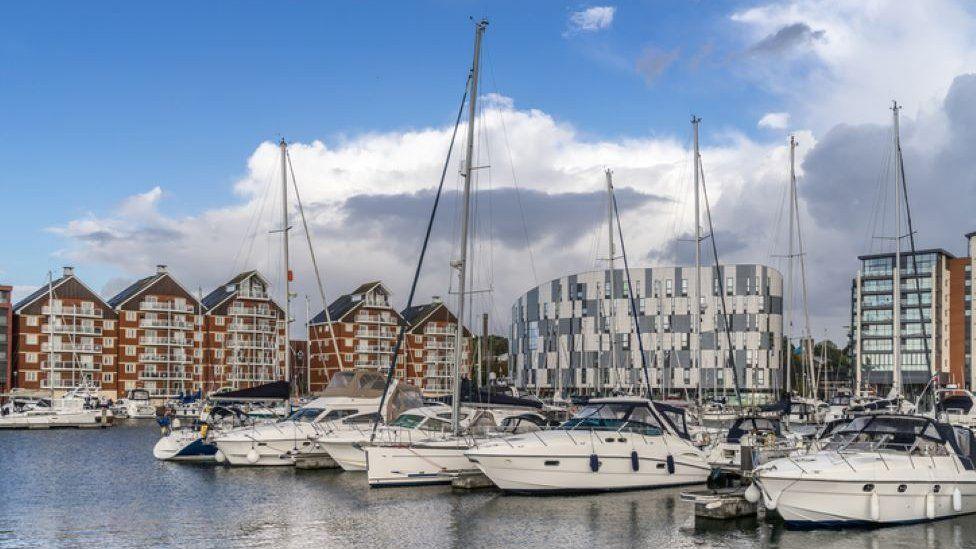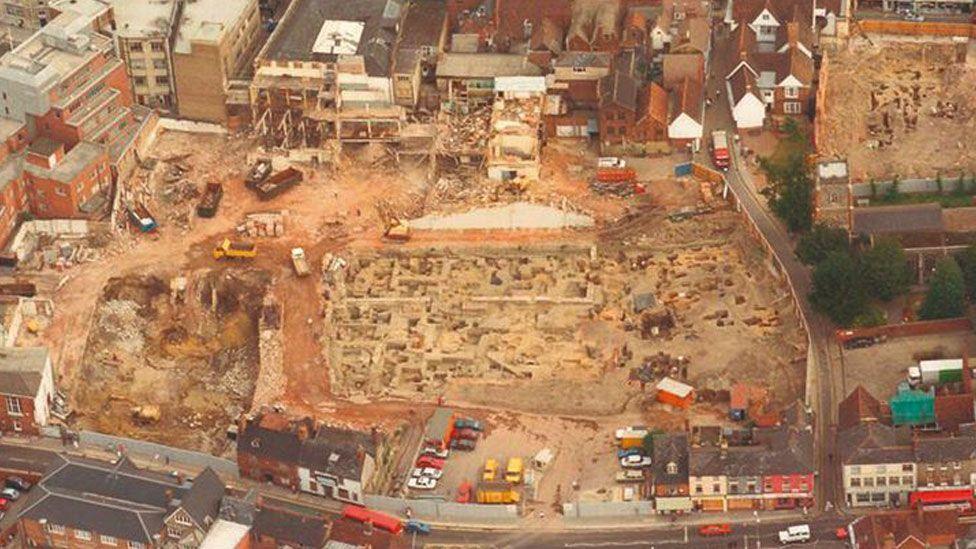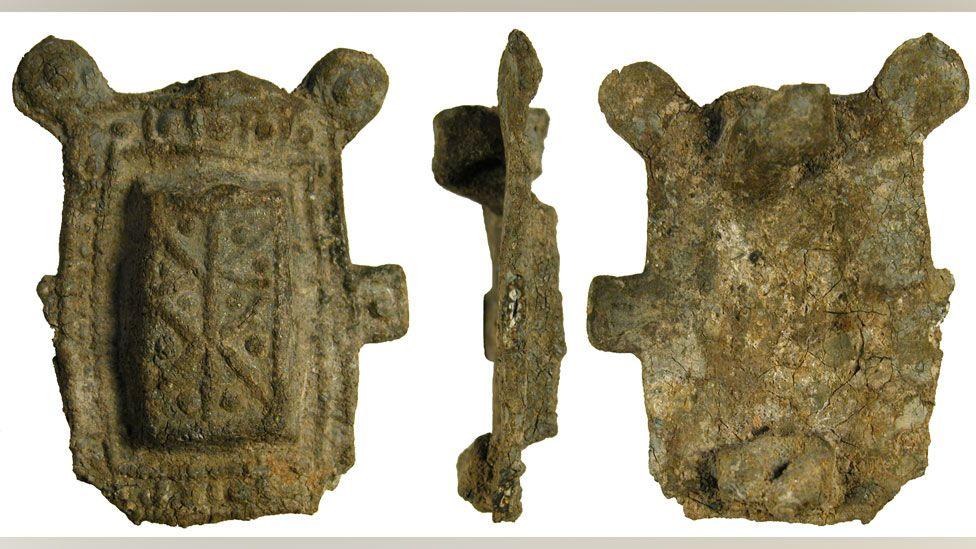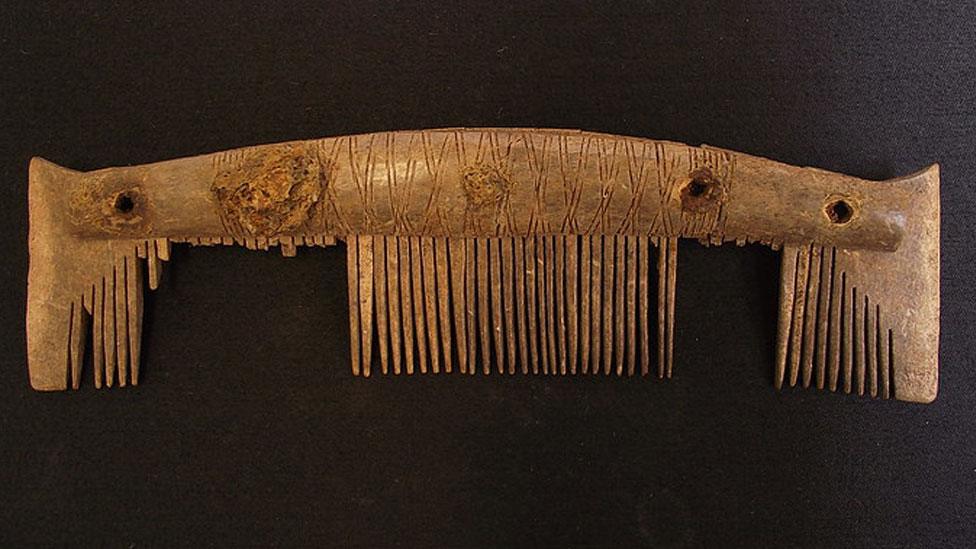Excavations reveal town's 1,400-year history

Ipswich began as a 7th Century trading base and by the 8th Century was an important port
- Published
Decades-worth of excavations have confirmed Ipswich as England's oldest town with continuous occupation on the same site, according to an archaeologist.
Keith Wade supervised more than 50 digs in the town while working for Suffolk County Council archaeological service for more than 40 years.
Ipswich dates back to the 7th Century, was occupied by the Vikings and was burnt down by William the Conqueror.
Mr Wade has published a book about the town's 1,400-year history to "make the early importance of Ipswich more widely known".

The 1980s excavation, ahead of the construction of the Buttermarket Shopping Centre, revealed centuries of habitation
"For me, Ipswich has been an outstanding archaeological project," he said.
"I was privileged to be in the right place at the right time to excavate in Ipswich for over 40 years."
His book, titled Gipeswic: The Anglo-Saxon Town of Ipswich, supports Mr Wade's long-held belief Ipswich is the country's oldest town with continuous occupation on the same site.
It describes how it began as a landing place for 7th Century European traders and became a permanent town in the early 8th Century.
This makes it one of the three earliest English towns - the others being Southampton and London.

Finds include an early medieval lead brooch, dating back to the 9th Century
Ipswich: The oldest town?
Keith Wade wanted to "make the early importance of 'Gipeswic' more widely known".
Mr Wade has been a local archaeologist since 1974 and retired from the county's archaeological service in 2012.
His excavations included one ahead of the construction of the Buttermarket Shopping Centre.
He helped uncover a 7th Century cemetery overlaid with streets and buildings dating from the 8th to 11th centuries, and a medieval Carmelite Friary.

Carbonised bread rolls dating back to when the town was burnt down following the Norman Conquest
Another excavation, on Foundation Street, revealed the first town bank and ditch built by the Vikings, as well as a medieval Dominican Friary.
Debbie Richards, the council's deputy cabinet member for archaeology and landscape partnerships, described it as "a unique look into Ipswich's history".
"I'm delighted that [Keith's] knowledge will live on in this book, and be a part of Ipswich's future for the benefit of researchers and historians," she said.
Get in touch
Do you have a story suggestion for Suffolk?
Follow Suffolk news on BBC Sounds, Facebook, external, Instagram, external and X, external.
Related topics
- Published19 April

- Published2 April 2024

- Published16 April
